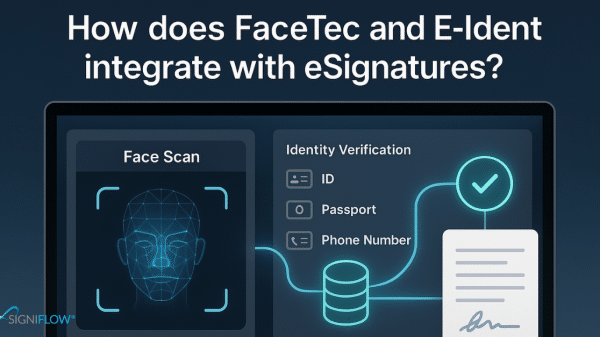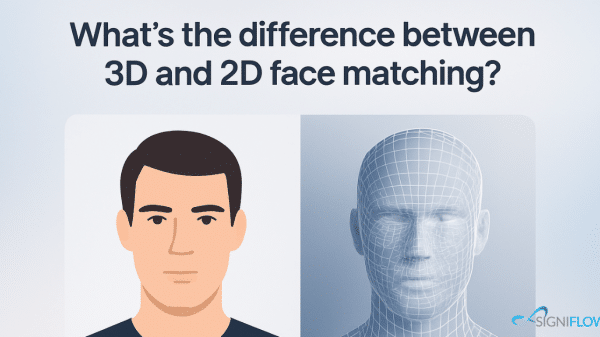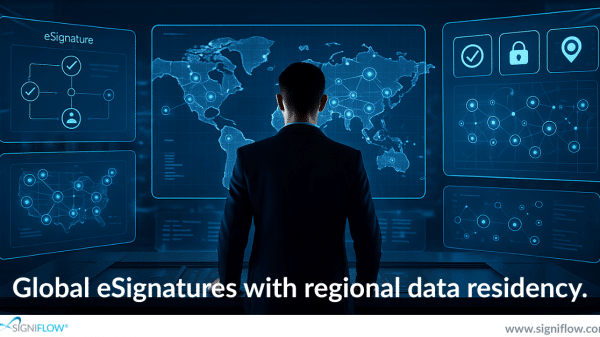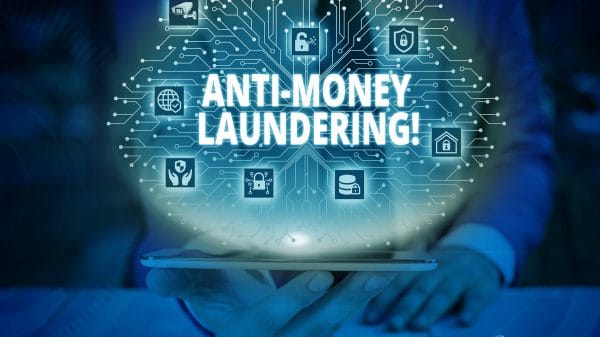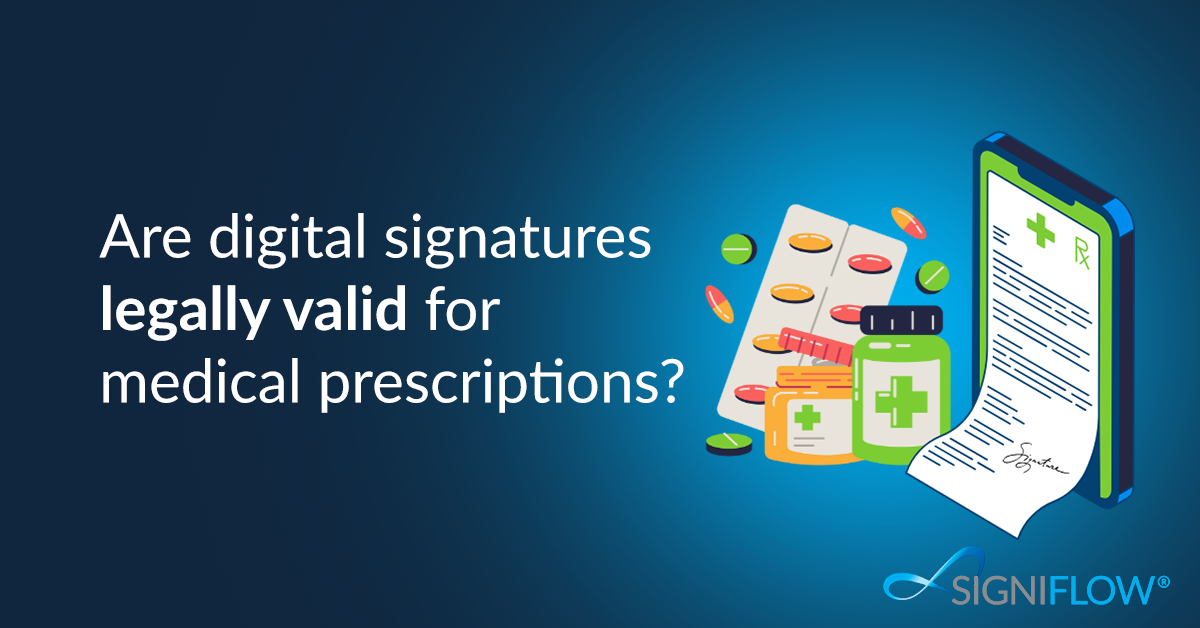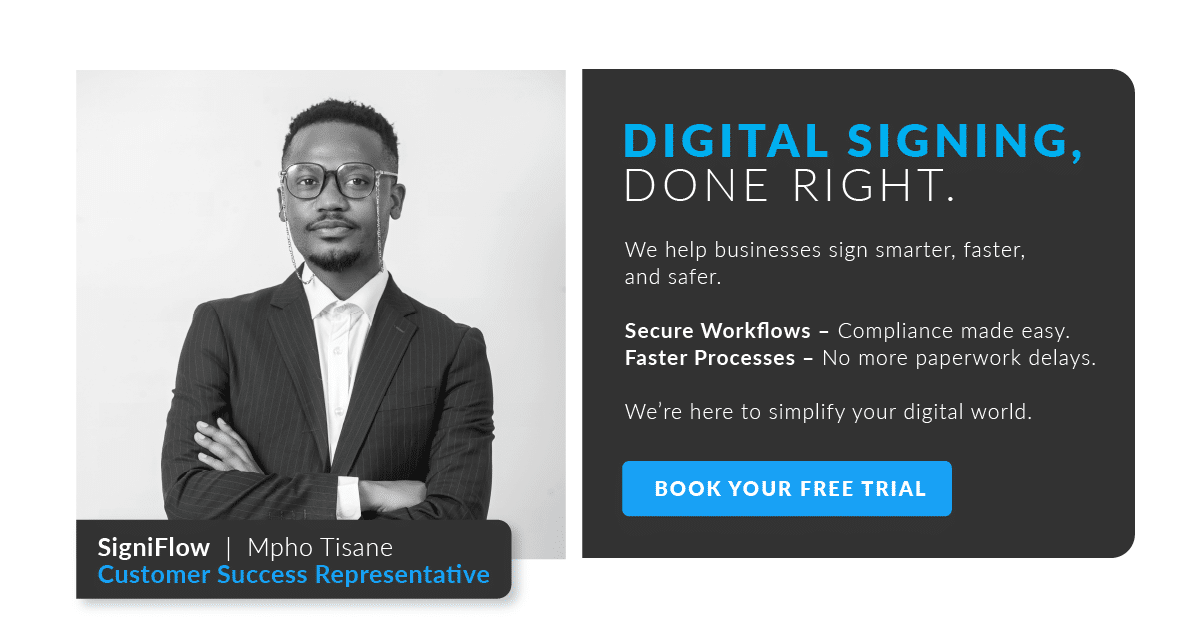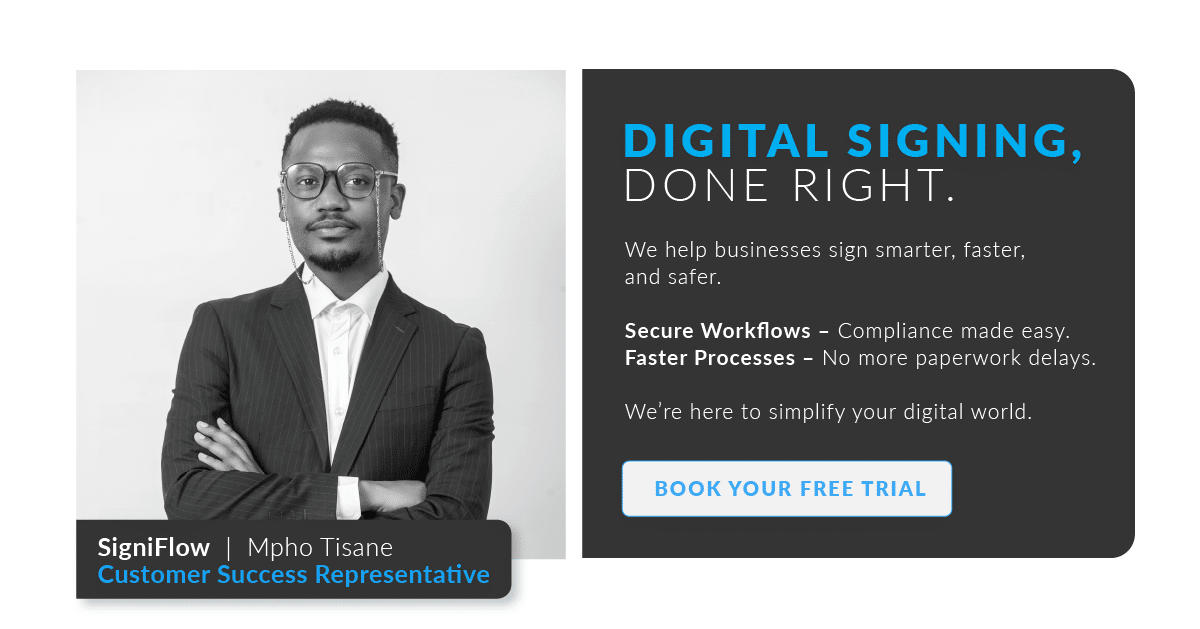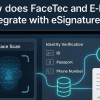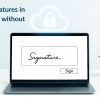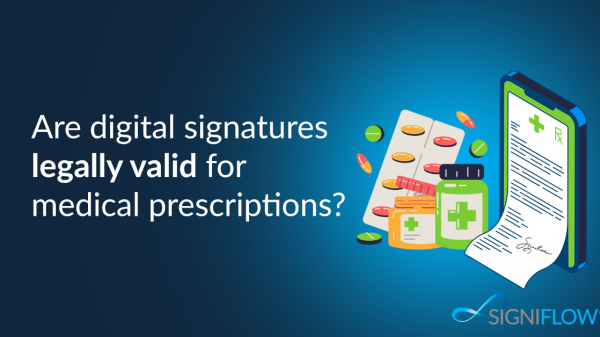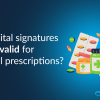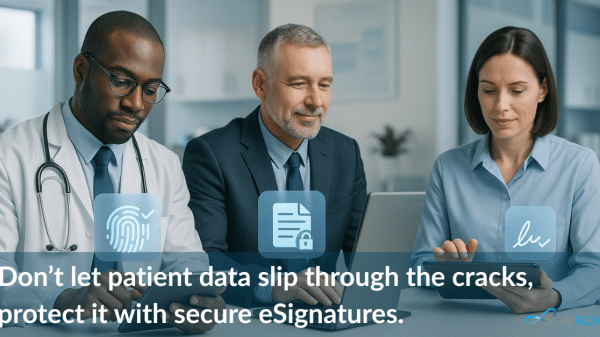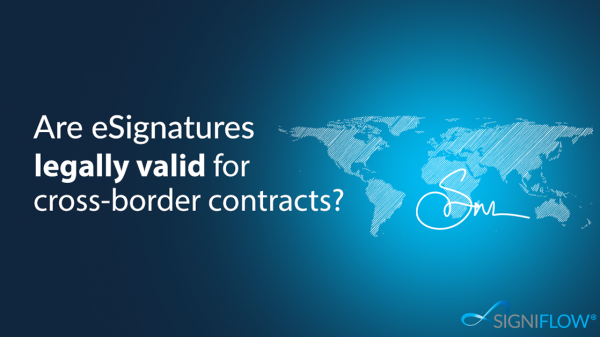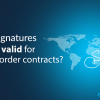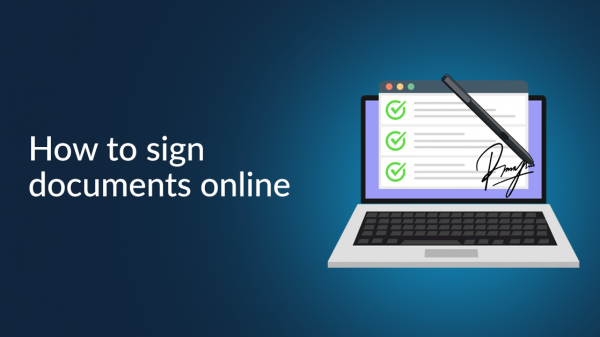If your healthcare organisation handles medical prescriptions at scale—across hospitals, clinics, or pharmacy networks—you’ve likely asked: Are digital signatures legally valid for medical prescriptions? As South Africa’s healthcare sector accelerates its digital transformation, this question is becoming more and more of a strategic one.
Digital signatures that are legally valid for medical prescriptions have become essential for modern, compliant healthcare operations. They reduce paper-based bottlenecks, strengthen data protection, and ensure faster, more secure medical prescription workflows. The result? Reduced risk, enhanced efficiency, and a future-proofed medical prescription process across your entire healthcare organisation.
Digital signatures are legally valid for medical prescriptions in many countries
Around the world, regulators are realising the value of digital transformation in healthcare—and they’re responding. From the UK and EU to the United States, Australia, South Africa, and across parts of Asia, laws and frameworks are evolving to ensure that digital signatures are not only recognised, but legally valid for medical prescriptions.
This shift reflects a growing urgency: medical prescriptions must be secure, tamper-proof, and fast to process—and digital signatures deliver on all three.
For pharmacists, this means dispensing medical prescriptions becomes quicker, safer, and more reliable. Frameworks like eIDAS in the EU and the FDA’s 21 CFR Part 11 in the US are already in effect, setting rigorous standards that ensure digital signatures meet legal and medical requirements. South African pharmacists, too, are starting to benefit from a more defined regulatory landscape—one that supports the use of digital signatures for legally valid medical prescriptions.
As adoption grows, more countries follow suit, recognising digital signatures as a reliable way to support healthcare providers and pharmacists.
There is a growing urgency in healthcare sectors: medical prescriptions must be secure, tamper-proof, and fast to process—and digital signatures deliver on all three.
How digital signatures protect the security and legal validity of medical prescriptions
Security, trust, and traceability are essential in healthcare. Digital signatures add all three of these to the process of issuing medical prescriptions, ensuring they remain legally valid from doctor to pharmacist. For pharmacists, this means receiving medical prescriptions that haven’t been altered or forged—saving time and reducing risk.
Digital signatures use advanced encryption to lock a medical prescription the moment it’s signed—making any alteration immediately visible. This tamper-evident design is what gives digital signatures their strength, ensuring medical prescriptions remain secure, traceable, and legally valid across regulatory environments.
What makes digital medical prescriptions legally valid in different parts of the world?
For medical prescriptions to be accepted globally, they must meet each country’s definition of legally valid digital documentation. This directly impacts pharmacists responsible for interpreting and dispensing these medical medical prescriptions.
Legal validity usually requires strong user authentication, secure storage, and audit trails. Digital signatures that meet these standards are accepted across borders, allowing pharmacists to confidently fill medical prescriptions knowing they’re authentic, safe, and legally valid.
That assurance matters—especially when your organisation is accountable for the integrity of every medical prescription issued, signed, and dispensed.
Digital signatures make managing medical prescriptions easier
For doctors, pharmacists, and healthcare organisations, shifting to digital signatures simplifies daily operations—no more printing, signing, or scanning paper medical prescriptions. Instead, one secure step ensures the document is legally valid and ready to be dispensed.
For pharmacists, this speeds up service, reduces administrative work, and improves patient outcomes. Digital workflows also ensure medical prescriptions remain easy to trace and verify, all while meeting the necessary criteria to be legally valid.
At an organisational level, this shift translates into measurable gains: fewer errors, faster turnaround times, reduced paper dependency, and improved compliance oversight—without disrupting existing systems. It’s a practical change with a strategic payoff.
SigniFlow supports globally compliant digital signatures for medical prescriptions
At SigniFlow, we understand what’s at stake when healthcare providers digitise sensitive processes like medical prescription handling. Our digital signature technology meets international compliance standards—ensuring every medical prescription is secure, traceable, and legally valid.
For pharmacists, this means confidence in every script they fill. But for healthcare organisations, it means something even more critical: a streamlined, future-ready workflow that protects your operations, satisfies audit requirements, and scales without compromise.
The shift to digital is no longer a question of if—but how quickly you can do it safely. SigniFlow is built to get you there.
Learn more on our webpage here.



